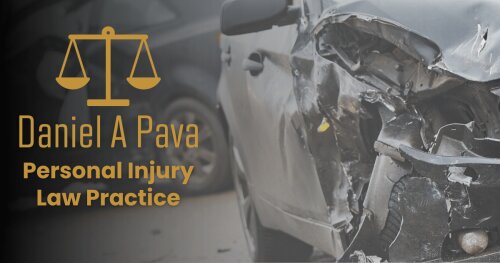Best Birth Injury Lawyers in Springfield
Share your needs with us, get contacted by law firms.
Free. Takes 2 min.
List of the best lawyers in Springfield, United States
1. About Birth Injury Law in Springfield, United States
Birth injury law covers harm to a baby or mother caused by medical negligence during pregnancy, labor, or delivery. In Springfield, Illinois, most birth injury cases are medical malpractice claims against hospitals, obstetricians, or other health professionals who may have deviated from the standard of care. These cases require careful medical and scientific evidence, typically including testimony from qualified medical experts. Common injury types include cerebral palsy, Erb duchenne palsy, hypoxic-ischemic encephalopathy, and delays in neonatal resuscitation.
In practice, a birth injury claim can involve both the baby and the mother, depending on who was harmed and how. Springfield attorneys work with medical experts to determine if a preventable mistake occurred and whether that mistake caused the injury. Local rules also affect how claims are filed, what evidence is needed, and the deadlines that apply. The goal is to obtain compensation for medical expenses, long-term care, and other damages tied to the injury.
2. Why You May Need a Lawyer
Here are 4-6 concrete, Springfield-specific scenarios where you would benefit from consulting a birth injury attorney. These examples reflect the kinds of issues that arise in local hospitals and clinics.
- A newborn develops Erb’s palsy after a difficult delivery in a Springfield hospital, possibly from excessive shoulder manipulation or forceps use. You need an attorney to review hospital records, neonatal care notes, and whether proper risk management and timely intervention were followed.
- A baby suffers hypoxic brain injury because fetal heart rate monitoring was not promptly acted upon during labor. An attorney can help determine if standard monitoring procedures were correctly followed and whether staffing or protocol failures occurred.
- There is a suspected delay in performing an emergency C-section, leading to long-term developmental challenges for the infant. A lawyer can assess preoperative planning, anesthesia decisions, and intraoperative communication for potential negligence.
- The child sustains a birth-related brain injury that requires ongoing, expensive medical care. An attorney helps evaluate the total lifetime costs and whether multiple responsible parties (hospital, physician, or others) should be included in a claim.
- A mother sustains serious birth injuries during delivery, such as excessive bleeding or uterine rupture, with lasting health consequences. An attorney can help determine if the hospital’s procedures contributed to the harm and pursue appropriate damages.
- You are facing a potential wrongful birth or wrongful life scenario, where parents seek compensation due to alleged failure to inform about birth defects or genetic risks. An attorney can assess eligibility, timing, and remedies under Springfield law.
In Springfield, a lawyer can also explain procedural steps such as pre-litigation requirements, discovery timelines, and settlement versus trial strategies. A local attorney can help you identify relevant health care providers and gather the necessary medical records efficiently. Consulting an attorney early can improve your chances of preserving key evidence and meeting deadlines.
3. Local Laws Overview
Birth injury cases in Springfield are governed mainly by state level frameworks that regulate medical malpractice and related claims. The following laws are central to how these claims are handled in Illinois:
- Illinois Medical Malpractice Act - This statute provides the framework for professional liability claims against doctors and certain health care facilities in Illinois, including how damages are pursued and how such claims are processed. It also interacts with pre-litigation procedures and expert requirements that are often central to birth injury cases. For current text and amendments, see the Illinois General Assembly's official site.
- Health Care Services Liability Act (HCSLA) - This act includes pre-litigation steps such as notice to the health care provider and expert verification requirements that govern medical malpractice claims in Illinois. These steps shape how a birth injury case proceeds before any lawsuit is filed. Refer to official state resources for the exact text and current requirements.
- Illinois Wrongful Death Act - When a birth injury case results in the death of a child or where a parent brings a claim on behalf of a deceased infant, this act governs the damages recoverable and the procedural path for wrongful death actions. Official state sources provide the current scope and limitations.
Practical notes for Springfield residents: you must consider deadline rules (statutes of limitations and repose) and whether pre-litigation procedures apply. These deadlines and requirements are subject to change, so verify current text through official sources. For current statutes and amendments, see the Illinois General Assembly website and state department resources.
Key resources to confirm current law and procedures:
- Illinois General Assembly - official source for statutes and amendments including the Illinois Medical Malpractice Act and Health Care Services Liability Act.
- Illinois Department of Public Health (IDPH) - information on maternal and infant health programs, birth outcomes, and related reporting.
- Centers for Disease Control and Prevention (CDC) - national guidance on birth injuries, maternal and infant health, and prevention strategies.
- National Institute of Child Health and Human Development (NICHD) - research and resources on neonatal and birth injuries.
4. Frequently Asked Questions
What is a birth injury claim?
A birth injury claim alleges harm to a baby or mother caused by medical negligence during delivery or pregnancy. It typically requires medical expert testimony to prove a deviation from the standard of care. Claims are handled through civil court in Springfield, with specific deadlines and procedural rules.
What is the difference between birth injury and medical malpractice?
Birth injury is a subset of medical malpractice focused on complications arising during labor and delivery. Medical malpractice also covers prenatal care, anesthesia, and postnatal treatment. Both require showing that care fell below the standard of care and caused harm.
What is a certificate of merit and is it required?
A certificate of merit is a formal statement from a qualified medical professional confirming that the plaintiff’s claim has a reasonable basis. Illinois requires this step in many medical malpractice cases to verify the claim's legitimacy before proceeding.
Do I need a Springfield birth injury attorney to start a claim?
Having an attorney who specializes in birth injuries helps gather records, identify responsible parties, and navigate deadlines. A local lawyer understands hospital practices and nearby medical providers in Springfield. They can coordinate with medical experts and insurance entities.
How much can I recover in a birth injury case in Illinois?
Damage amounts depend on medical expenses, ongoing care needs, lost income, and pain and suffering. In addition, some cases may include non-economic damages and future care costs. An attorney can help you value the claim based on your child’s prognosis and local costs of care.
How long do I have to file a birth injury lawsuit in Illinois?
Statutory deadlines apply to birth injury claims and vary by circumstances. In most medical malpractice situations, deadlines are strict, and missing them can bar a claim. A Springfield attorney can identify the correct timeline based on your facts.
What is the pre-litigation process in Illinois birth injury cases?
Pre-litigation steps may include notice to the health care provider and obtaining a certificate of merit or other required documentation. Completing these steps correctly can determine whether a case can proceed to court. Your attorney will guide you through each requirement.
Do I need to prove the hospital or doctor was negligent?
Yes. A successful birth injury claim requires showing that medical negligence occurred and that it caused the injury. This typically involves expert medical testimony and careful review of medical records and procedures.
Can I pursue a claim if the injury is minor or appears to resolve quickly?
Even seemingly minor injuries can justify a claim if evidence shows preventable harm and ongoing consequences. A lawyer can assess long-term impact and the potential value of future care needs.
Is settlement possible before trial in Springfield birth injury cases?
Most birth injury cases settle before trial, often through mediation or negotiated settlements. An attorney helps evaluate settlement offers and ensure that long-term care needs are fully funded. Trial remains an option if settlement cannot resolve the matter fairly.
Should I file for a wrongful death claim if the baby dies from birth injury?
Yes, a wrongful death claim may be appropriate if the infant dies due to birth injury. This can help recover damages for surviving family members and cover costs related to the loss. An experienced attorney can determine eligibility and strategy.
5. Additional Resources
- Illinois Department of Public Health (IDPH) - Monitors maternal and infant health programs, birth outcomes, and safety initiatives in Illinois. Useful for background on public health standards and reporting requirements. IDPH
- Centers for Disease Control and Prevention (CDC) - Provides national data and guidance on birth injuries, maternal health, and neonatal care. CDC
- National Institute of Child Health and Human Development (NICHD) - Research and resources on neonatal brain injury, cerebral palsy, and related topics. NICHD
6. Next Steps
- Confirm the exact Springfield location involved and gather basic facts about the birth event, including dates, hospital, and treating physicians. This helps tailor the legal strategy and identify relevant local rules.
- Collect medical records for the delivery and immediate postnatal period, including nursing notes, fetal heart rate tracings, and NICU reports. Organize them by date and provider to speed up review.
- Identify potential defendants such as the delivering physician, hospital, and any underlying care providers. Your attorney will determine who should be named in a claim based on the record review.
- Consult a Springfield birth injury attorney to evaluate the merits of the case, outline pre-litigation steps, and discuss potential damages and long-term care needs. Schedule the initial consultation within 2-4 weeks.
- Discuss pre-litigation requirements with your attorney, including any notice or expert consultation rules applicable in Illinois. Ensure you meet all deadlines to protect your claim.
- Obtain a preliminary prognosis from medical experts to project long-term care costs and quality of life impacts. This helps quantify damages for settlement negotiations or trial.
- Decide with your attorney whether to pursue settlement or proceed to litigation. Most birth injury cases settle, but be prepared for trial if a fair settlement cannot be reached.
- Prepare for possible discovery, depositions, and expert consultations. Your attorney will coordinate scheduling and ensure you stay within timelines.
Lawzana helps you find the best lawyers and law firms in Springfield through a curated and pre-screened list of qualified legal professionals. Our platform offers rankings and detailed profiles of attorneys and law firms, allowing you to compare based on practice areas, including Birth Injury, experience, and client feedback.
Each profile includes a description of the firm's areas of practice, client reviews, team members and partners, year of establishment, spoken languages, office locations, contact information, social media presence, and any published articles or resources. Most firms on our platform speak English and are experienced in both local and international legal matters.
Get a quote from top-rated law firms in Springfield, United States — quickly, securely, and without unnecessary hassle.
Disclaimer:
The information provided on this page is for general informational purposes only and does not constitute legal advice. While we strive to ensure the accuracy and relevance of the content, legal information may change over time, and interpretations of the law can vary. You should always consult with a qualified legal professional for advice specific to your situation.
We disclaim all liability for actions taken or not taken based on the content of this page. If you believe any information is incorrect or outdated, please contact us, and we will review and update it where appropriate.










